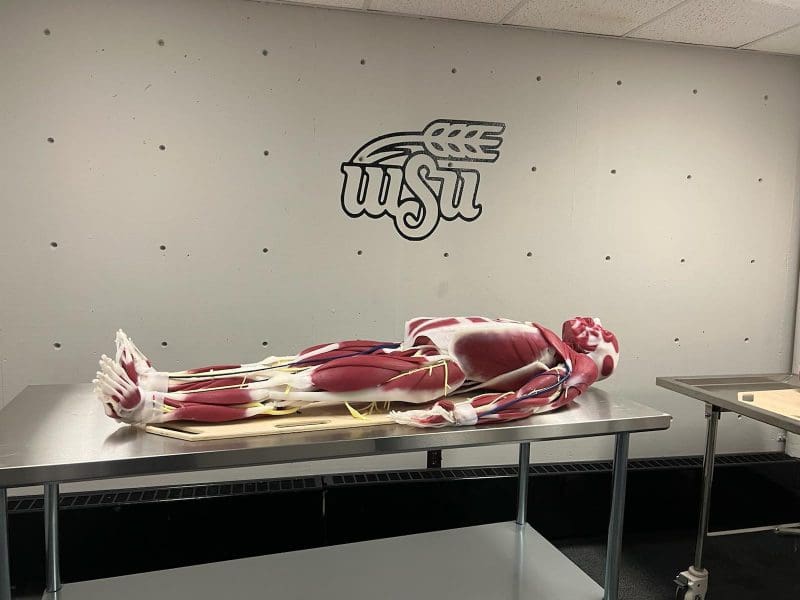The Dean’s Advisory Council for the College of Health Professions (CHP) met April 29 to discuss the significant impact of simulation and robotics on the training of healthcare professionals. A major limitation to training in most health professions programs has been the ability to identify and recruit hospitals and health clinics to provide practical experience working with patients in a clinical setting.
Recently, the availability of high-fidelity manikins and robotics has allowed programs to provide practical experience to students through simulated situations in a safe environment for learning. Simulation training has been shown to better prepare trainees for interacting with human patients and result in better health outcomes.
The CHP has invested over $1 million in new simulation facilities and equipment that will allow the College to provide cutting-edge training to students from undergraduate through doctoral programs.
“High-fidelity robotic simulation will continue to be an important and growing part of training in the health professions,” said Dr. Gregory Hand, dean of CHP. “Our goal is for the college to be second-to-none in providing health science simulation across our programs.”

